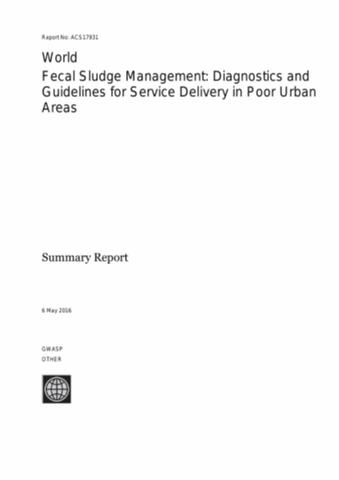The World Bank is a vital source of financial and technical assistance to developing countries around the world. We are not a bank in the ordinary sense but a unique partnership to reduce poverty and support development. The World Bank Group has two ambitious goals: End extreme poverty within a generation and boost shared prosperity.
- To end extreme poverty, the Bank's goal is to decrease the percentage of people living on less than $1.25 a day to no more than 3% by 2030.
- To promote shared prosperity, the goal is to promote income growth of the bottom 40% of the population in each country.
The World Bank Group comprises five institutions managed by their member countries.
The World Bank Group and Land: Working to protect the rights of existing land users and to help secure benefits for smallholder farmers
The World Bank (IBRD and IDA) interacts primarily with governments to increase agricultural productivity, strengthen land tenure policies and improve land governance. More than 90% of the World Bank’s agriculture portfolio focuses on the productivity and access to markets by small holder farmers. Ten percent of our projects focus on the governance of land tenure.
Similarly, investments by the International Finance Corporation (IFC), the World Bank Group’s private sector arm, including those in larger scale enterprises, overwhelmingly support smallholder farmers through improved access to finance, inputs and markets, and as direct suppliers. IFC invests in environmentally and socially sustainable private enterprises in all parts of the value chain (inputs such as irrigation and fertilizers, primary production, processing, transport and storage, traders, and risk management facilities including weather/crop insurance, warehouse financing, etc
For more information, visit the World Bank Group and land and food security (https://www.worldbank.org/en/topic/agriculture/brief/land-and-food-security1
Resources
Displaying 366 - 370 of 4906The Effects of Climate Change on Coastal Erosion in West Africa
The effects of climate change, from
changing precipitation patterns to rising seas, will
exacerbate the coastal erosion already affecting West
Africa, increasing the exposure and vulnerability of the
people and assets located there. Given the importance of the
coastal zone to the region as a whole, it is critical that
policy makers consider the effects of future climate change
in the decisions they make today. Regional cooperation is
Protecting the Region’s Natural Resources
The West African coastal zone hosts
critical natural resources and habitats that provide
important ecosystem services. The area’s natural resources
play vital roles in the functioning of the shoreline,
providing natural protection against erosion, pollution, sea
level rise, and extreme weather events. Coastal and marine
ecosystems, including cold-water coral reefs, sea¬grass
meadows, mangrove forests, and coastal wetlands and lagoons,
Managing Coastal Risks in West Africa
Coastal erosion is a naturally occurring
process that is accelerated by human impacts. Artificial
stabilization of the shoreline, the deterioration of natural
formations, the construction of infrastructure, the
extraction of materials, and the proliferation of dams
deprive fragile coastal areas of important sediment
deposits, which leads to erosion. Degradation of the
shoreline reduces the natural protection of coastal areas to
Does Land Fragmentation Increase the Cost of Cultivation?
To appreciate overall impacts of fragmentation, underlying channels, and potential heterogeneity by holding size, we distinguish average fragment size and mean inter-fragment distance as two aspects of this phenomenon. Estimating a cost function with associated input demand equations on a large nationally representative Indian survey, robust to endogeneity, suggests that fragmentation’s main impact is to reduce mean plot size below the threshold for mechanization. Higher inter-fragment distances increase costs for larger holdings, but by a much smaller magnitude.
Fecal Sludge Management
Urban sanitation remains a significant challenge for most low- and middle-income countries. While sanitation coverage has been increasing across both the 48 least developed countries (LDCs) and developing regions as a whole, progress has been relatively slow. In many cities, even where improved on-site facilities are used to contain excreta, the level of quality and access to services for the emptying, conveyance, treatment, and disposal of the resulting fecal sludge is usually limited. These services are collectively called fecal sludge management (FSM) services.







